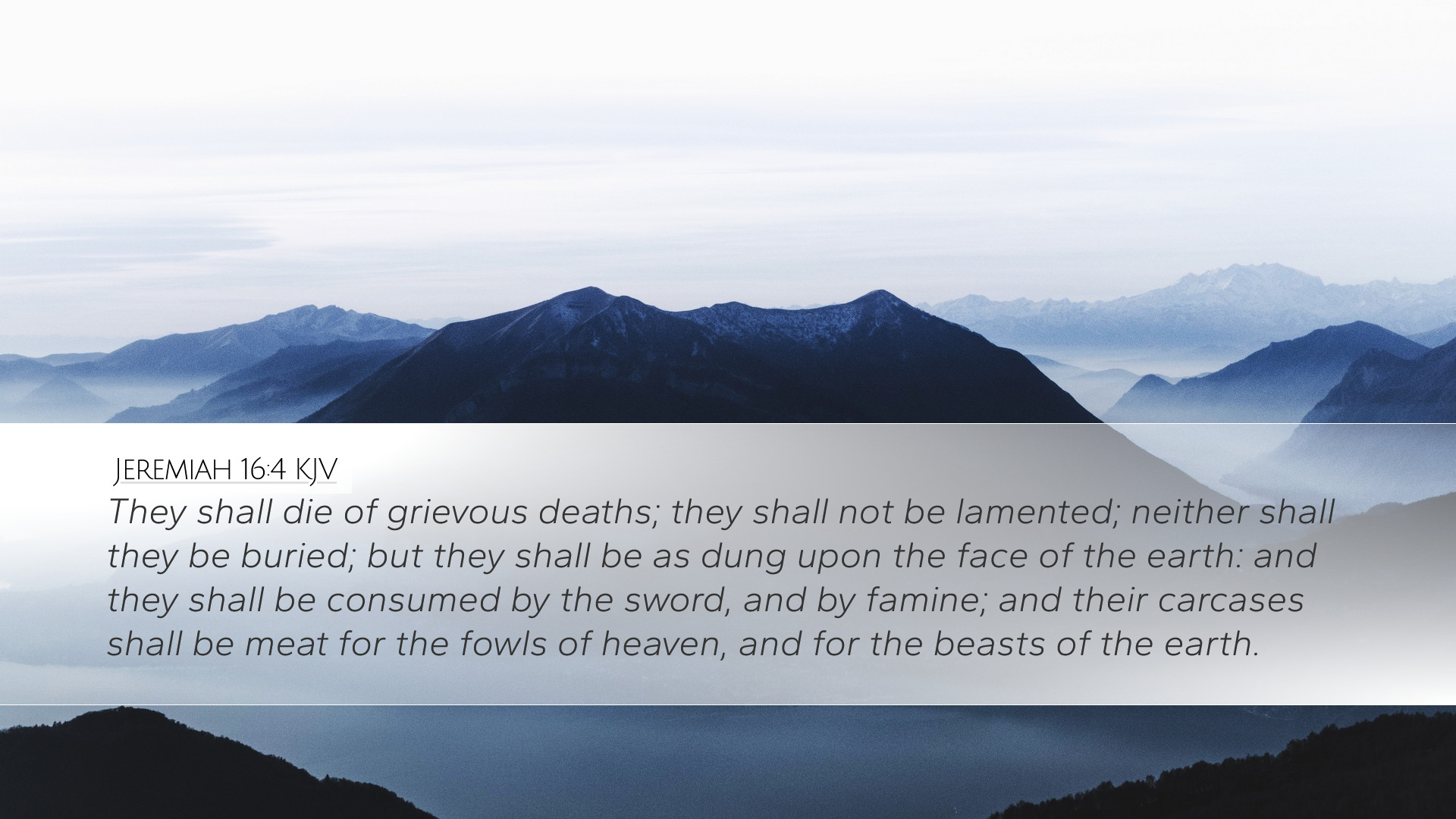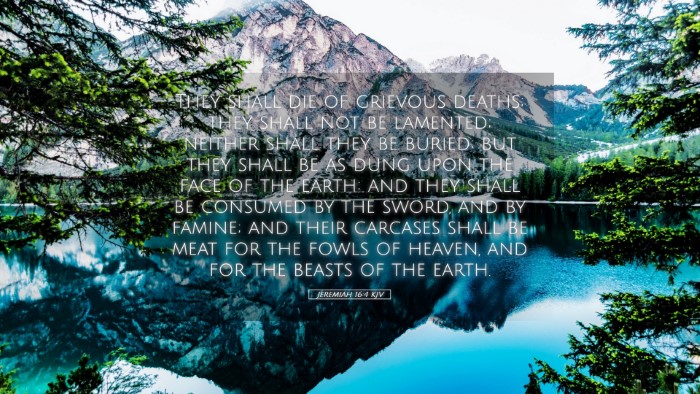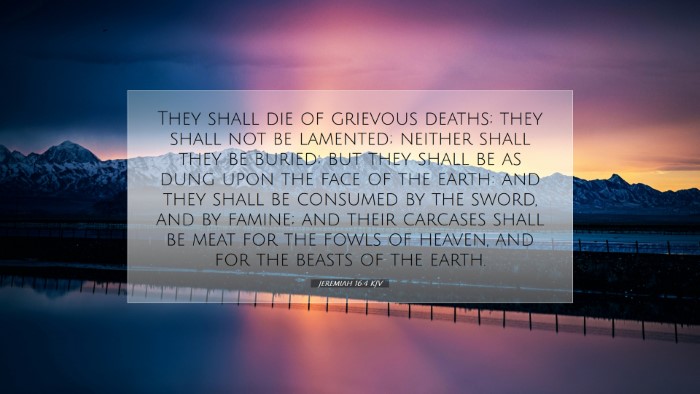Commentary on Jeremiah 16:4
Verse in Context: Jeremiah 16:4 states, "They shall die of grievous deaths; they shall not be lamented, neither shall they be buried; but they shall be as dung upon the face of the earth: and they shall be consumed by the sword, and by famine; and their carcasses shall be meat for the fowls of heaven, and for the beasts of the earth."
Overview and Historical Context
The book of Jeremiah is a prophetic text that unfolds during a tumultuous period in Israel’s history, notably around the time of Judah's impending exile and destruction. Jeremiah's role as a prophet tasked with delivering difficult messages serves as a precursor to understanding the gravity of the dire warnings presented in chapter 16. The emotional weight of the prophecy speaks to the judgment of God against unrepentant hearts.
Thesis of the Prophecy
This verse encapsulates the theme of divine judgment prevalent throughout Jeremiah. The language employed illustrates the intensity of God's displeasure. The absence of mourning, burial rites, and the degradation of the bodies as dung highlight the complete disfavor awaiting those who reject God. These prophetic declarations serve to awaken hearts to the seriousness of spiritual decline.
Insights from Public Domain Commentaries
Matthew Henry's Commentary
Henry emphasizes the grim realism of the prophecy. He notes that the “grievous deaths” reflect a judgment that is not simply physical but spiritual and societal decay. The lack of lamentation or burial signifies the ultimate disgrace inflicted upon the disobedient. In ancient Israel, proper burial was significant, linking one’s identity and honor. Thus, the humiliation of being left unburied acts as a spiritual metaphor for total rejection by God.
Albert Barnes' Notes
Barnes highlights the metaphor of the “dung upon the face of the earth” as an expression of utter contempt. He explains that such a fate indicates not only physical death but a symbolic representation of the moral and spiritual corruption that had pervaded the nation. The emphasis on being consumed by sword and famine reinforces the severity of God's wrath. It illustrates a scenario where the consequences of disobedience are inevitable and devastating, indicating that God’s justice cannot be postponed. Recognizing this, believers today are reminded of the grave consequences that stem from turning away from God.
Adam Clarke's Commentary
Clarke provides a nuanced examination of the imagery presented in this verse. He asserts that the use of natural elements, such as fowls and beasts, signifies a common fate that all mortal beings share, emphasizing the universality of death. Clarke points out that the vivid images serve not only as a warning to those directly involved but also as a lesson for future generations regarding the holiness and justice of God. His analysis invites readers to reflect on their own lives and consider the seriousness with which they approach their relationship with God.
Theological Implications
Theologically, Jeremiah 16:4 confronts the reader with the reality of God's judgment against sin. The prophetic voice serves as a reminder of the need for repentance and the consequences of continued rebellion against divine authority. It challenges contemporary believers to self-examine and recognize the areas of spiritual neglect in their lives. Understanding the weight of God's justice encourages a holistic approach to discipleship, urging one to pursue holiness and intimate fellowship with the Almighty.
Application for Today
- Repentance: There is a compelling call to acknowledge personal sins and seek repentance, fostering a sincere return to God, who is rich in mercy.
- Awareness of Judgment: Awareness of God's judgment should instill a sense of urgency in believers regarding evangelism and the proclamation of the Gospel.
- Spiritual Vigilance: The state of Judah serves as a cautionary tale for the modern church about the perils of complacency and cultural assimilation.
Conclusion
Jeremiah 16:4 is not merely a statement of doom but a clarion call for awareness and action. Through the insights of revered commentators, we understand the gravity of God's message of judgment wrapped in compassion, as it seeks to restore rather than solely condemn. Thus, this verse compels the reader to embrace the truth of God’s Word, leading to life-changing encounters with the living Christ.


